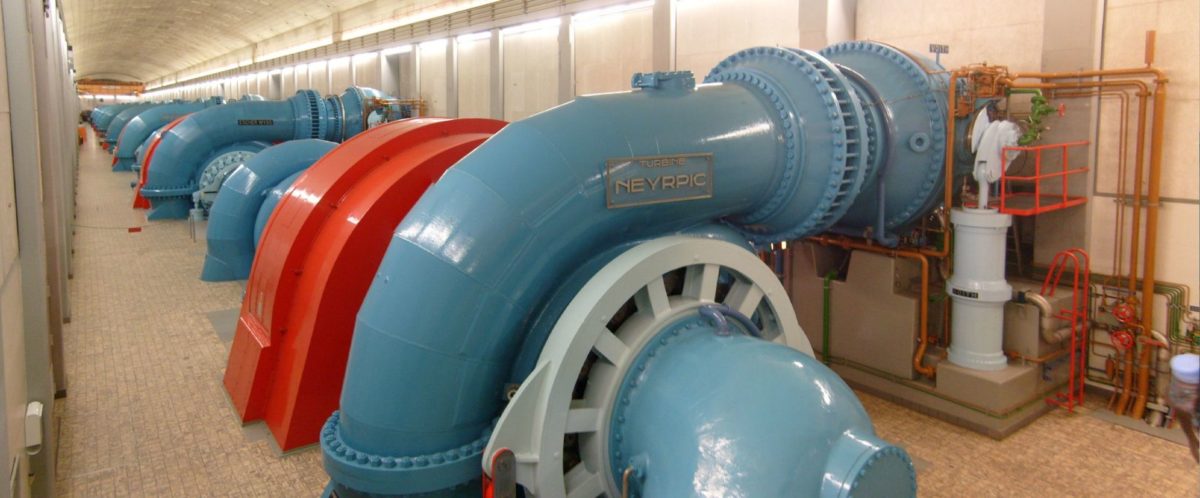India’s ministry of power has prepared draft guidelines to promote the development of pumped storage projects (PSPs) across the country.
India targets to reduce the emission intensity of its gross domestic product (GDP) by 45% by 2030, reach 50% of the installed power capacity from nonfossil fuel sources by 2030 and achieve net-zero carbon emissions by 2070.
Given the increasing integration of wind and solar power into the grid, PSPs are of paramount importance for providing greater inertia and balancing power to the grid. These can store a large amount of energy and provide frequent starts/stops and faster ramp-ups/ramp-downs.
The draft National Electricity Plan (NEP) published by the Central Electricity Authority indicates that 18.8 GW of PSPs and 51.5 GW of BESS (5 hours) are required to integrate the planned RE capacity addition till 2032. The PSP capacity requirement may further increase if the cost of BESS does not come down as expected.
The PSP guidelines issued by the ministry cover the allotment of project sites, charges to be paid by the developer, monetization of ancillary services, utilization of exhausted mines to develop PSPs, environmental clearances for off-river PSPs, green finance, etc.
According to the guidelines, for early development, state governments may award projects directly to hydro CPSUs or State PSUs on a nomination basis. PSP projects may also be awarded to private developers by following a two-stage competitive bidding process. In the first stage, the developers will be pre-qualified based on their financial strength, experience in developing infrastructure projects of similar size, past track record of developing projects, turnover, and ability to meet performance guarantees. In the second stage, bids will be based on quantifiable parameters such as the concession period of the project or any other parameter specified by the central/state government.
In case of allocation through the above modes, the home state shall have the right of first refusal for 40% of the project capacity and the tariff shall be fixed by the appropriate Commission under Section 62 of the Electricity Act, 2003. The developer would be free to sell the balance storage space under a short-, medium- or long-term power purchase agreement (PPA), in power markets, or through a bilateral contract.
The guidelines state that PSP projects may also be awarded on a tariff-based competitive bidding basis to developers. Here bids can be made based on composite tariff (including the cost of input power) in case input power is arranged by the developer, or tariff for conversion of power from off-peak to peak if the input power is to be arranged by the procurer of the storage capacity.
The appropriate Commission shall ensure suitable monetization of ancillary services like spinning reserves, reactive support, black start, peaking supply, tertiary and ramping support, and faster start-up and shutdown that help in supporting grid stability.
Efforts would be made to identify and develop exhausted mines including coal mines as prospective PSP sites.
PSP projects, where both reservoirs are built off-river or where one reservoir is built off-river and the existing on-river reservoir undergoes minor structural modification to connect it with the new reservoir, may be exempted from environmental impact assessment and public hearing.
Further, PSPs may be supported through concessional climate finance. Sovereign green bonds issued for mobilizing resources for green infrastructure as a part of the government’s overall market borrowings may be deployed in the development of PSPs that utilize renewable energy for charging.
This content is protected by copyright and may not be reused. If you want to cooperate with us and would like to reuse some of our content, please contact: editors@pv-magazine.com.









By submitting this form you agree to pv magazine using your data for the purposes of publishing your comment.
Your personal data will only be disclosed or otherwise transmitted to third parties for the purposes of spam filtering or if this is necessary for technical maintenance of the website. Any other transfer to third parties will not take place unless this is justified on the basis of applicable data protection regulations or if pv magazine is legally obliged to do so.
You may revoke this consent at any time with effect for the future, in which case your personal data will be deleted immediately. Otherwise, your data will be deleted if pv magazine has processed your request or the purpose of data storage is fulfilled.
Further information on data privacy can be found in our Data Protection Policy.